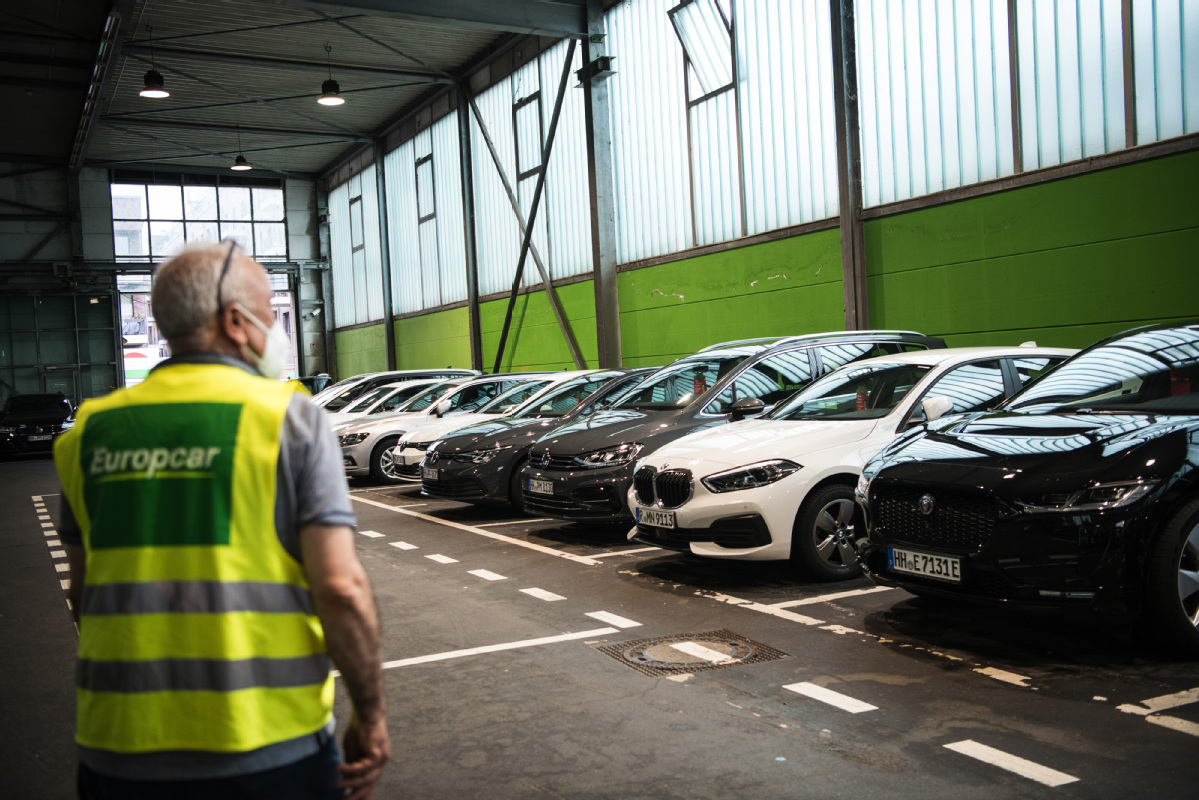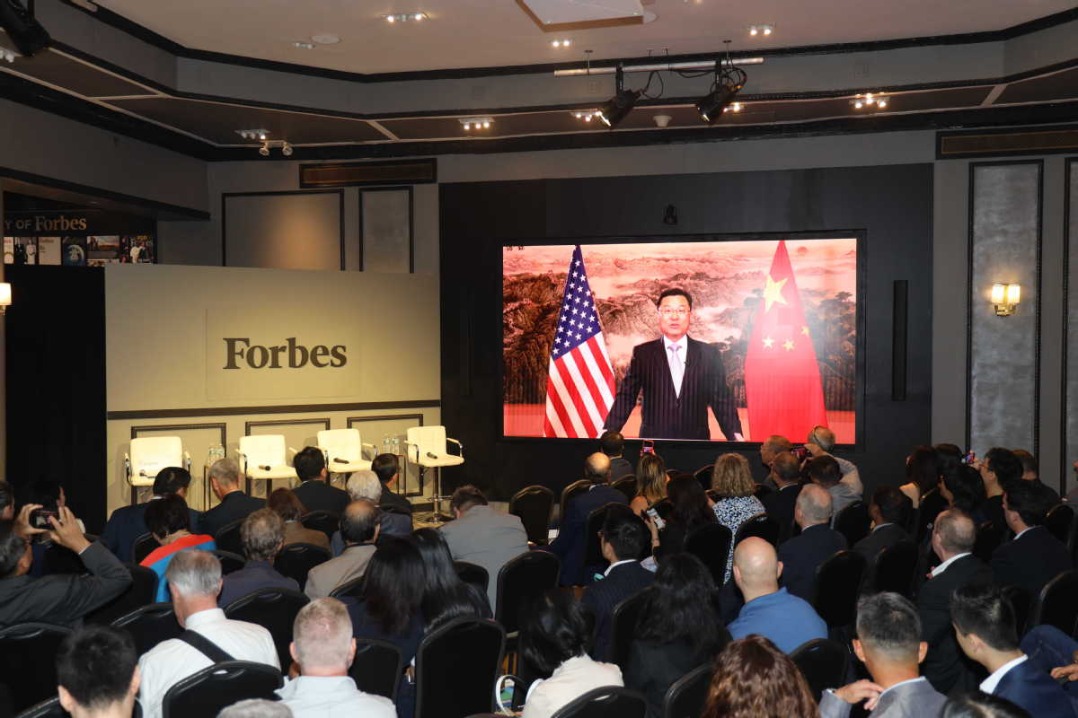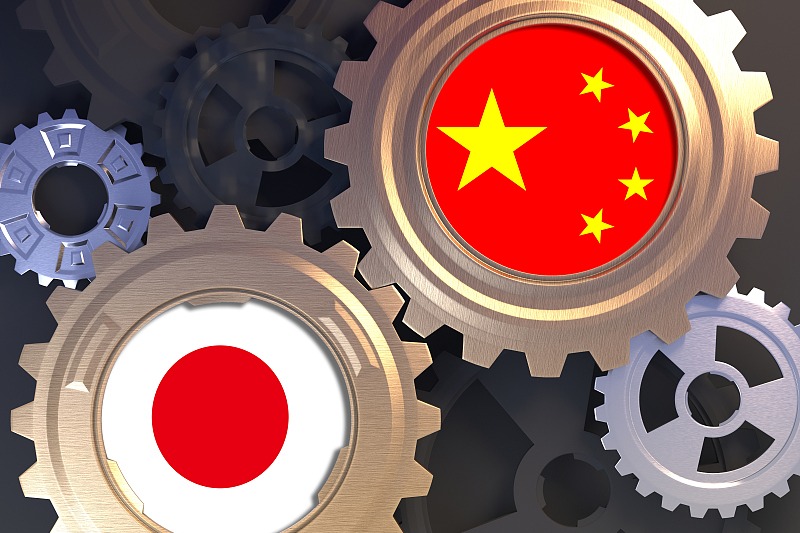EU tariffs trigger trade war concerns
Experts: Decision targeting Chinese EVs threatens to hinder bloc's green efforts


The European Commission's decision to impose punitive duties on the imports of battery electric vehicles from China has drawn criticism from experts who worry about a potential trade war and a slowdown in the European Union's net-zero ambition.
The commission disclosed on Tuesday to interested parties the draft decision to impose definitive countervailing duties on imports of EVs from China, with a slight adjustment from the provisional duties announced earlier.
The latest duties range from 36.3 percent for SAIC, 19.3 percent for Geely, 17 percent for BYD and 9 percent for Tesla, which accounts for more than one-third of the EU's EV imports from China. The decision will not retroactively collect countervailing duties.
Ding Chun, director of the Center for European Studies at Fudan University in Shanghai, said the commission's decision is "extremely regrettable".
Neither China nor the EU should necessarily aim to achieve the most optimum outcome for themselves, but the second-best outcome through coordination, Ding said.
"They should be rational and practical and handle the dispute cautiously to avoid a trade war, which will be a lose-lose outcome for both sides."
The dispute should be resolved through healthy competition and cooperation to promote new energy vehicle industries, he said. "Protectionism won't help speed up technological advancement and industrial upgrade, or win competition and market or satisfy customers."
Chris Aylett, a research associate at the Environment and Society Centre at Chatham House, a think tank in London, voiced concerns that the EU tariffs will slow down the bloc's green transition.
Decarbonization technologies such as solar panels, wind turbines and EVs share a characteristic that sets them apart from other traded goods, Aylett wrote on the Chatham House website.
"When swapped for fossil fuel alternatives, they reduce the quantity of planet-warming gases being pumped into the atmosphere. They are needed in vast quantities, and in very short order, to give any chance of avoiding the worst impacts of climate change."
He argued that the EU's ambitious goal of net zero by 2050, along with an intermediate target of at least a 55 percent reduction by 2030, "implies deploying mass-market clean technology products like solar panels and electric vehicles in very large numbers".
World leader
"When it comes to cheap, clean technology, China is the undisputed world leader. Two decades of consistent and targeted industrial policy, combined with the benefits of a huge domestic market, mean that China today produces extremely competitively priced, high-quality, low-carbon goods," he said, citing examples that the cheapest EVs in France were priced between $24,000 and $32,500 last year, while in China, more than 50 models were retailing locally for less than $15,000.
"All else being equal, anything which stems the flow of the cheapest low-carbon products will increase the cost of the transition and slow it down, increasing the risk of the EU missing its emission reduction targets," he said.
He also cautioned that if the EU keeps the cost of consumer goods such as EVs high, it will strengthen the perception of clean energy as something for the rich, and of concern for the climate as an elite preoccupation.
"It is not hard to see how these issues could be exploited for political gain, posing further risks to a successful transition," Aylett said.
Uri Dadush and Conor McCaffrey, two researchers at Brussels-based think tank Bruegel, said the punitive tariffs "represent a formidable barrier in an industry where average profit margins are typically in the range of 4 percent to 8 percent".
The biggest effects of tariffs are the rise in consumer prices and, over time, the diversion of imports to more expensive third-party suppliers, they wrote in a joint analysis.
"In this case, high prices for EVs will cause additional damage by directly slowing the green transition and by garbling the commission's message about its urgency and overwhelming importance," they said. "Low-income EU consumers who need a car and are already struggling with high prices will be especially affected."
China has established a clear technological lead across the EV value chain, one that may no longer depend on subsidies, they added.
They suggest that Chinese OEMs (original equipment manufacturers) may respond to the duties by establishing production in the EU, but that option will also entail higher costs and prices, and in any event will only be open to the biggest producers.
"Some Chinese producers of EVs and batteries may prefer instead to establish their largest facilities in lower-cost locations with access to the EU market, as is already happening in Morocco and Turkiye," the analysis said.
"Within the EU, Hungary, which maintains close relations with China, may turn out to be the preferred EU location for Chinese OEM investment."

































